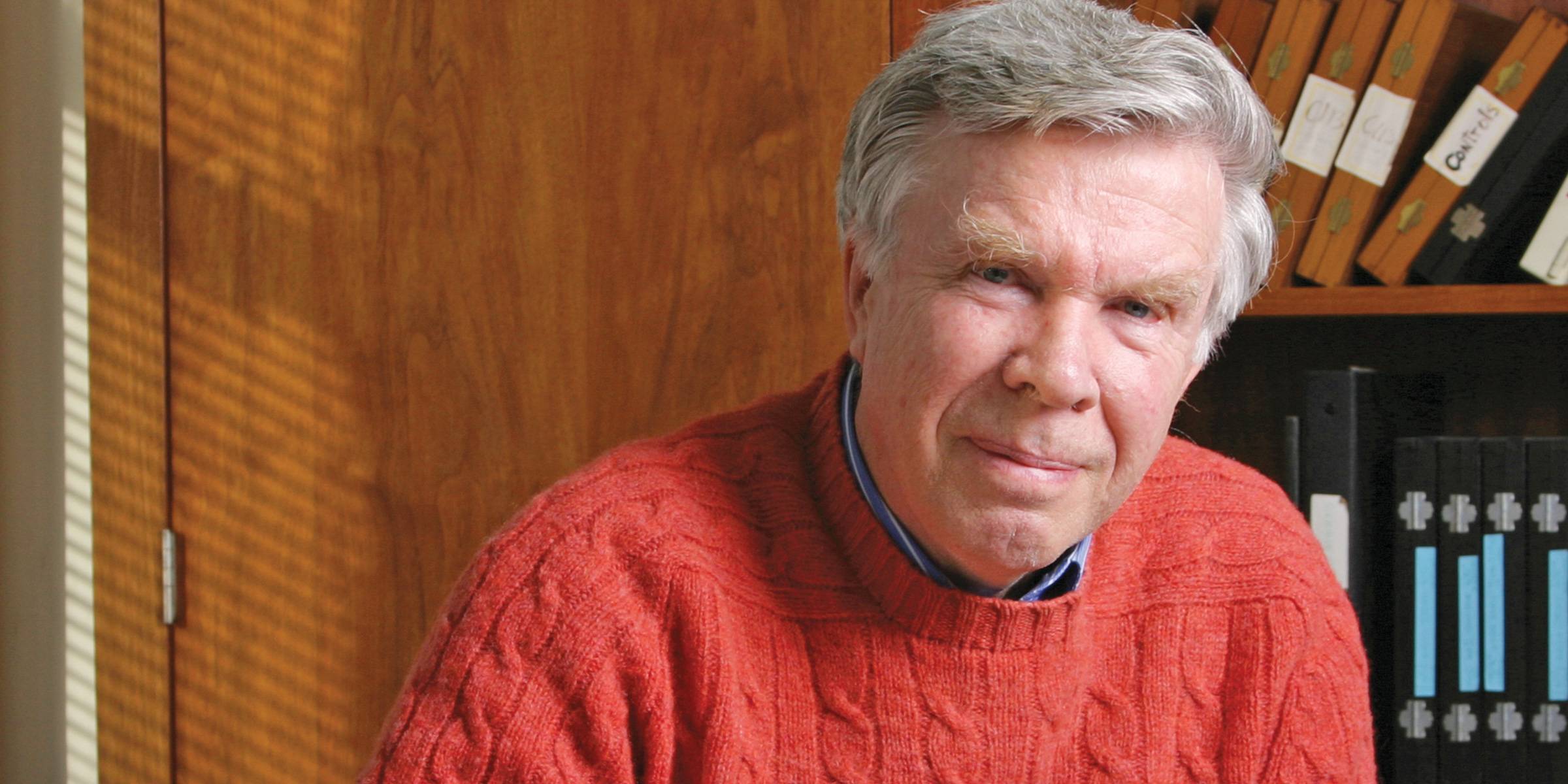Fernando Nottebohm, Ph.D.
Dorothea L. Leonhardt Professor Emeritus
- Laboratory of Animal Behavior (opens in new window)
Nottebohm is interested in the origin and evolution of ideas, and he examines the genesis of concepts as a biological process. He holds that a full understanding of a phenomenon requires that we know its origins and evolution, and that this holds true for our understanding of matter, space, time, people, life, the universe, gods, and science.
For decades, the Nottebohm laboratory worked on the basic biology of vocal learning in birds. This research described the stages of vocal learning and the underlying circuitry, which includes anatomically discreet nuclei that seem to have no function other than the acquisition and production of learned song. Several of these nuclei are larger in males, which do most of the singing, than in females. Furthermore, in males the size of these nuclei changes seasonally; some of these nuclei accommodate a constant production and replacement of the very cells whose circuits encode the learned song, and this replacement peaks at times of peak memory load.
These discoveries led to a rethinking of the elements that set limits on how much can be learned: The replacement of seemingly healthy neurons suggests that long-term memory involves not only changes in synaptic efficacy and number, but also changes in DNA expression, affecting a cell’s performance in a circuit. Such permanent changes would, however, use up memory space, thus setting the need for periodic replacement of whole cells. Conceived in this manner, the management of memory space emerges as a key principle of brain function and suggests that neuronal replacement can also be thought of as a process of brain rejuvenation.
In recent years, Nottebohm has switched his attention from hands-on experimental work to an ambitious review of the genesis of key ideas in science, philosophy, and religion. His work treats the phenomenon of culture formation as a biological process, with laws of its own and emergent patterns and paradoxes. His focus is on big questions, including the origins of people, of life, of the universe, and of God. Nottebohm argues that such questions—aimed to understand how some of the thoughts and beliefs at the center of our culture came to be and the rhythm and rules of their creation and modification—constitute a legitimate scientific challenge.
Nottebohm received his B.A. and Ph.D. in zoology from the University of California, Berkeley in 1962 and 1966, respectively. He came to Rockefeller in 1967 as an assistant professor. He became associate professor in 1971, and professor in 1976. From 1981 to 2016 he served as director of the Field Research Center for Ethology and Ecology. He is a member of the National Academy of Sciences, American Academy of Arts and Sciences, and American Philosophical Society, and is a fellow of the American Association for the Advancement of Science.
